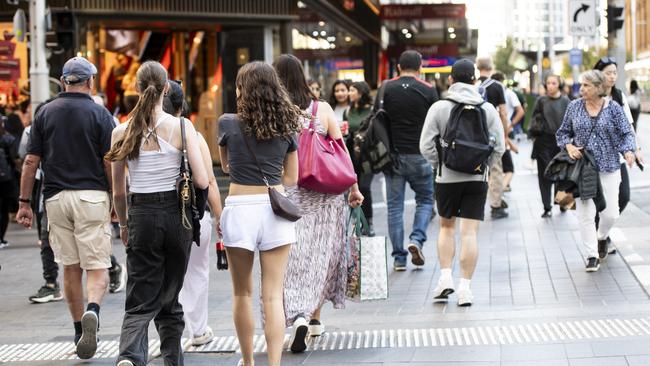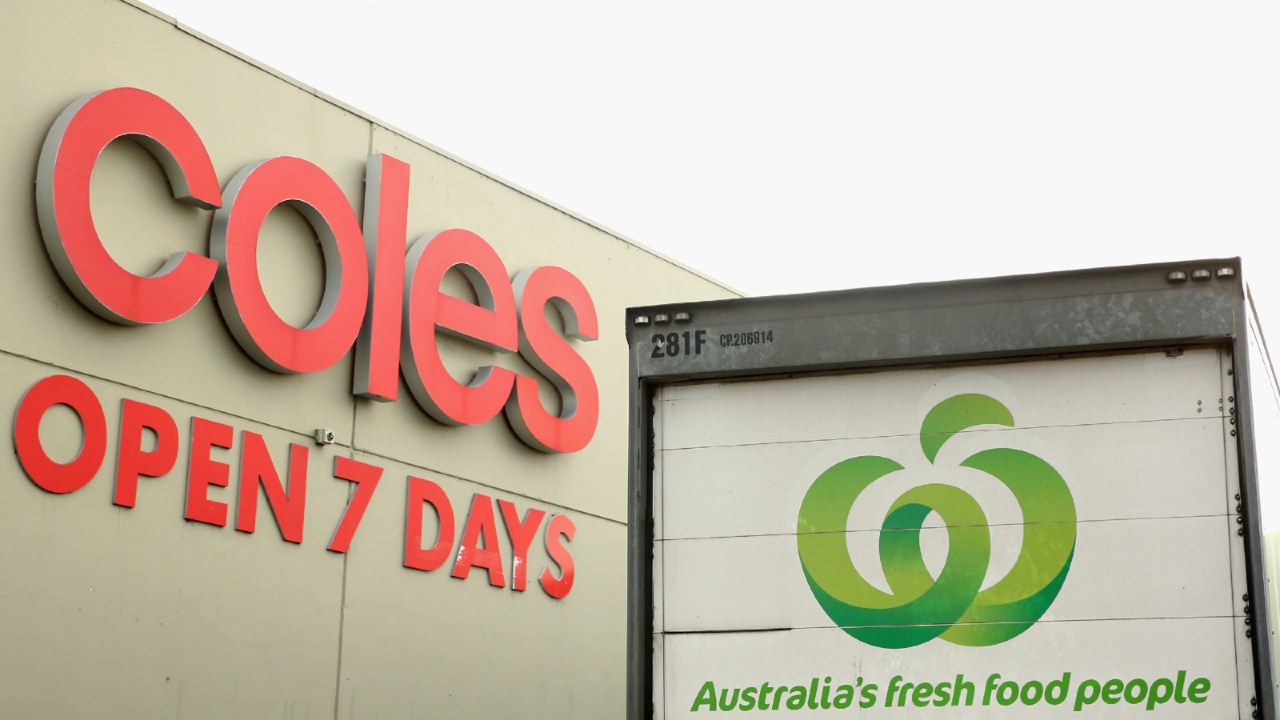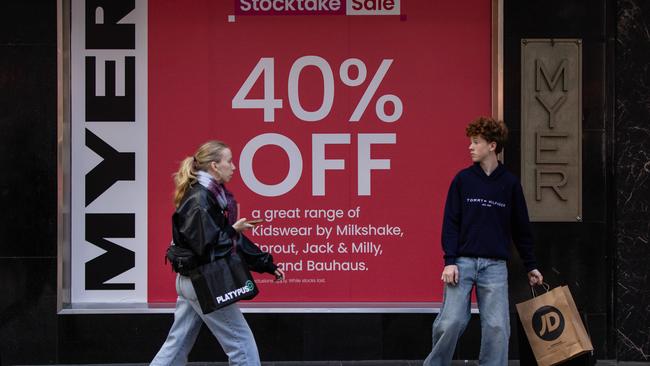Deloitte warns Australia in a retail recession that won’t end until interest rate cuts occur
A retail recession in Australia shows no sign of ending until the RBA offers struggling households mortgage relief, as a growing number of businesses shut up shop.

Australian retailers face a horror show that shows no signs of ending anytime soon, according to Deloitte analysts who warn the country is in the midst of a retail recession as households cut back on spending due to mortgage rates and inflationary pressures.
Deloitte Access Economics cautioned retailers that conditions would not improve until 2025 at the earliest, and cost-of-living measures by the Albanese government and tax cuts would not have an immediate benefit. It comes as economists warned that while inflation had slowed to 3.5 per cent in the year to July, the Reserve Bank would not be thrilled that the fall was driven by temporary energy price subsidies from state and federal governments, and would not be in a place to offer relief to households and retailers.
Deloitte analysis of the June quarter retail trade data confirmed that after a brief lift into positive sales growth, the retail sector had again slumped back into recession.
Deloitte Access Economics partner David Rumbens said the retail sector had all the hallmarks of an “economic horror show” with high cost of living, increasing insolvencies, elevated interest rates and a weakening labour market.
“The period from now to Christmas is still expected to be a difficult one for retailers, but perhaps less of a slog than it has been,” Mr Rumbens said.
“As with most horror sequels, the characters are generally more prepared, and the plots generally more predictable.

“The only reprieve is that this may be the shorter and shallower version of last year’s retail recession, with retailers well prepared to weather the storm.”
Mr Rumbens said while a retail recession would not surprise many, with real retail spending down in six of the last seven quarters, record immigration levels seen since 2022 masked the real pain being felt.
Analysis by Deloitte showed that real per capita retail spending contracted for the last eight quarters, and was now 2.5 per cent lower than June 2023, and 6.3 per cent off June 2022.
“This sits against a backdrop of poor conditions across the economy more generally, with the labour market weakening and business insolvencies rising,” Mr Rumbens said.
“While these figures are poor, it’s the one-third of consumer spending that goes to retailers that is going backwards, with negative growth of 0.6 per cent in real spending over the year to June.”
The Australian Bureau of Statistics data showed that annual headline monthly inflation slowed to 3.5 per cent in July, higher than market expectations of 3.4 per cent. This was the result of annual electricity price inflation which slumped from 7.5 per cent in June to a deflationary 5.1 per cent in July.

Betashares chief economist David Bassanesse said energy subsidies lowered inflation by 0.2 per cent in the month, but would lift CPI by 0.35 per cent when they tapered off.
“The RBA is not likely to be overly excited by the result and it does not add to the case for a rate cut anytime soon,” Mr Bassanesse said.
“It will hold firm until it gets further conviction of falling underlying inflation from the more detailed and reliable quarterly CPI report. And it will likely require at least two encouraging quarterly CPI results before it could act.”
New data from the Australian Securities & Investments Commission showed insolvencies increased 45 per cent in July to 1239, compared to the same period in 2023, as the number of hospitality businesses closing down rocketed 140 per cent, and 32 per cent for retail businesses.
Mr Rumbens said retailers were used to cautious consumers who were value-conscious, but where some – generally those older and mortgage free – still had money to spend.
“Going forward, helping to lift retailers out of recession will be the cost-of-living relief that is being rolled out to households in the form of energy bill relief, and tax cuts which have boosted household disposable income,” he said.

“We anticipate these measures will stimulate higher levels of consumer confidence and stoke consumer spending. As a result, retail recession – the sequel is expected to be short and shallow.”
Deloitte forecasted real retail sales growth to strengthen from -0.3 per cent in 2024 to 1.5 per cent in both 2025 and 2026.
Coles boss Leah Weckert this week said a more frugal attitude adopted by shoppers would remain for some time as many looked to cheaper cuts of meat, private labels and specials.
“To minimise spending, customers continue to eat more at home, cut back on treats, eat less red meat and reduce their alcohol consumption,” Ms Weckert said.
“It’s no surprise that they are telling us great specials and promotions, competitively priced products and loyalty programs are even more important when deciding where to shop.”





To join the conversation, please log in. Don't have an account? Register
Join the conversation, you are commenting as Logout